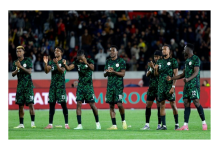Nigerian Netflix subscribers are reeling after the streaming giant announced its second price increase in just three months, with some subscription plans seeing an eye-watering 83% hike.
Effective July 2024, Netflix’s Premium Plan now costs ₦7,000 monthly, up from ₦5,000—a 40% leap. The Standard Plan climbed from ₦4,000 to ₦5,500 (a 37.5% increase), while the Basic Plan moved from ₦2,900 to ₦3,500. Most shocking of all, the Mobile Plan jumped from ₦1,200 to ₦2,200, an 83% increase that has left many users questioning their loyalty to the platform (TheCable, Nairametrics, TechCabal).
This pricing shake-up comes on the heels of an earlier hike in April 2024, when Premium subscriptions rose from ₦4,400 to ₦5,000 and Standard from ₦3,600 to ₦4,000. Netflix attributes the latest changes to its global strategy of boosting revenue and reinvesting in premium content, despite economic headwinds in key markets.
However, for many Nigerians, the timing couldn’t be worse. Inflation in the country surged to 34.18% in June 2024, and the naira continues to battle historic lows against foreign currencies. These economic pressures are raising the cost of living—and now, the cost of entertainment (BusinessDay, USAfricaOnline).
Industry analysts say Netflix’s dual pricing strategy reflects the company’s delicate balancing act—trying to stay competitive while scaling up content production and maintaining profitability. But while Netflix maintains its global appeal with blockbuster originals and Nollywood investments, Nigerian viewers are beginning to weigh their options more critically.
Some consumers have taken to social media to express frustration, with hashtags like #NetflixTooExpensive and #StreamingStruggles trending across platforms. Many are now exploring local alternatives like Showmax, Amazon Prime Video, and YouTube Premium, which offer competitive content at lower price points.
Although Netflix hasn’t publicly responded to the backlash, the company has previously defended its pricing decisions as necessary adjustments to “reflect local market conditions” such as inflation and currency devaluation. Similar price bumps have also been rolled out in other regions, including the U.S., U.K., and France (Guardian Nigeria).
As the dust settles, one thing is clear—streaming, once a pocket-friendly escape for Nigerians, is becoming a luxury many can no longer afford.
































